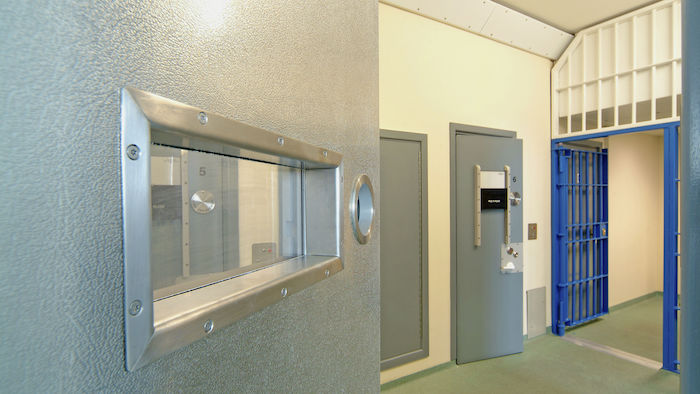When someone is sentenced to serve time in prison, they may wonder whether they have any choice in which prison they will be sent to. In the UK, prisoners are generally assigned to a prison based on a number of factors, including their security category, sentence length, and other individual needs.
However, there may be some limited circumstances where a prisoner is able to request a transfer to a different prison. In this article, we will explore whether prisoners have the ability to choose which prison they go to and under what circumstances.
Understanding The Prisoner Assignment Process
The process of assigning prisoners to a specific prison is complex and multifaceted. It is primarily driven by the need to maintain security and order within the prison system, while also taking into account the individual needs and circumstances of each prisoner.
The security category of a prisoner is one of the most significant factors in this process. The UK prison system is divided into four security categories, from Category A (high security) to Category D (open prisons). The security category of a prisoner is determined by the nature of their crime, their sentence length, their behaviour in prison, and their risk of escape.
The prison service also considers the sentence length of the prisoner. Those serving longer sentences may be placed in prisons with more extensive facilities and programs, while those serving shorter sentences may be placed in prisons closer to their home to facilitate family visits and community reintegration.
Other individual needs, such as medical conditions, mental health issues, and family circumstances, are also taken into account. The prison service aims to place prisoners in facilities that can adequately meet these needs, although this is not always possible due to space and security constraints.
Can prisoners choose which prison they go to?
In general, prisoners do not have the ability to choose which prison they will be sent to. The decision about which prison to assign a prisoner to is based on a number of factors, including their security category, sentence length, and other individual needs.
The UK prison system is divided into four security categories, ranging from Category A (high security) to Category D (open prisons). Prisoners are typically assigned to a prison based on their security category and the availability of space in the appropriate category.
The prison service aims to keep prisoners as close to their home as possible, but this is not always possible due to space and security constraints.
Under what circumstances can prisoners request a transfer to a different prison?
While prisoners generally do not have the ability to choose which prison they go to, there may be some limited circumstances where they can request a transfer to a different prison. These circumstances may include:
- Medical needs: If a prisoner has a medical condition that requires specialist treatment that is only available in a particular prison, they may be able to request a transfer to that prison.
- Family circumstances: If a prisoner has significant family responsibilities, such as caring for a child or an elderly relative, they may be able to request a transfer to a prison closer to their family.
- Security concerns: If a prisoner has concerns about their safety or has been threatened by other prisoners, they may be able to request a transfer to a different prison for their own protection.
- Rehabilitation: If a prisoner has completed a significant portion of their sentence and is ready to be reintegrated into society, they may be able to request a transfer to a prison that offers more rehabilitative programs.
Prisoners do not have the ability to choose which prison they will be sent to. The decision about which prison to assign a prisoner to is based on a number of factors, including their security category, sentence length, and other individual needs.
A Scenario Where A Prison Change May Be Possible
One possible scenario where a prisoner may be able to choose which prison they go to is if they have a medical condition that requires specialist treatment that is only available in a particular prison.
For example, imagine a prisoner named John who has a chronic medical condition that requires ongoing specialist treatment. John is currently housed in a prison that does not have the necessary medical facilities to provide him with the care he needs. John’s medical condition is worsening, and he is concerned that he will not receive the treatment he needs to manage his condition effectively.
In this scenario, John may be able to request a transfer to a different prison that has the necessary medical facilities and staff to provide him with the care he needs. John’s request would need to be approved by the prison service, and there may be other factors that are considered in the decision-making process, such as the availability of space in the appropriate security category.
If John’s request for a transfer is approved, he would be transferred to the new prison as soon as possible. Once he arrives at the new prison, he would receive an assessment to determine his security category and housing assignment based on his individual needs and circumstances.
It is important to note that the ability to choose a prison in the UK is rare and only granted under specific circumstances. Most prisoners are assigned to a prison based on their security category, sentence length, and other individual needs, and do not have the ability to choose which prison they go to.
However, there may be some limited circumstances where prisoners can request a transfer to a different prison, such as for medical needs, family circumstances, security concerns, or rehabilitation purposes. It is important to note that these transfers are not guaranteed and are subject to the discretion of the prison service.







